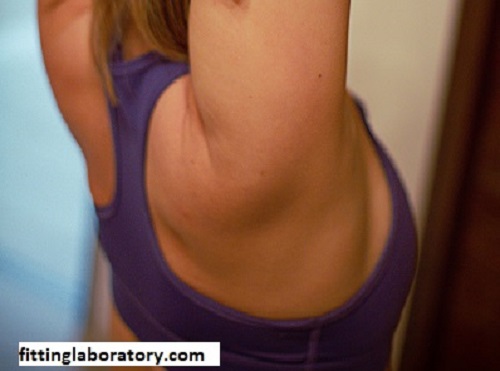Personal Fitness Merit Badge Workbook:
Personal Fitness:
The Personal Fitness Merit Badge Workbook: A Comprehensive Guide
To receive the Personal Fitness Merit Badge, scouts are challenged and motivated to be healthy, grow personally, and stay fit.

Personal fitness is a rewarding experience in the BSA program because it urges scouts to be more fit and health conscious as they go hand in hand with knowledge they can use throughout their lives. We will be discussing the basics of the Personal Fitness Merit Badge Workbook how to finish the workbook correctly, and the long-term benefits of advancing a commitment to a personal fitness plan.
Concept of Personal Fitness Merit Badge:
Personal Fitness:
The Personal Fitness Merit Badge is something that will explain to scouts the importance of physical fitness, nutrition, and overall health. The requirements include a wide range of topics such as:
Physical fitness assessment
- Developing a fitness plan
- Nutrition
- Healthy Habits
- Progress and Results
- Satisfying the needs for completion of this merit badge will not only qualify scouts for
- advancement but also provide lasting habits toward improved health and wellness.
Personal Fitness Workbook Content:
Personal Fitness:
This workbook is a guide devised to monitor the scout’s progress as well as documentation of his learning. The following are key contents that are usually included in the Personal Fitness Merit Badge Workbook:
1. Fitness Evaluation:
You’ll begin by assessing your overall physical fitness. This will consist of performing several activities and measuring a few aspects of fitness, such as:
- Endurance: This can be done using a running timed mile or doing a set number of push-ups or sit-ups.
- Flexibility: You might measure this by doing a sit-and-reach test to see how far you can reach past your toes.
- Strength: You can judge your strength by doing push-ups, pull-ups, or any weight-lifting exercise.
You take the first tests to give you a benchmark and encourage improvement over time.
2. Creation of a Fitness Program:
Personal Fitness:
Depending on your judgment of fitness, you should create your fitness program. The program should include
Form specific, measurable, achievable, relevant, and time-bound (SMART) goals. Your SMART goals may encompass running a mile within less than eight minutes or doing 30 push-ups in a minute.
- Activities: Depending upon your preference and willingness, you may opt for the activities. Some of the options are running, swimming, cycling, or sports.
- Schedule: Set a weekly schedule that defines the time you will exercise. Consistency is the key to fitness.
3. Nutrition and Healthy Eating:
Personal Fitness:
Nutrition is part of the personal fitness knowledge. The workbook suggests that scouts should learn about:
- Nutrition Guidelines: Read the USDA Dietary Guidelines for Americans. Read about the five food groups and find tips on preparing balanced meals.
- Meal Planning: Create an illustration of a healthy meal plan for breakfast, lunch, and dinner. Add healthy snacks to keep energy and nutrition.
- Hydration: Describe the importance of hydration and how water affects performance when exercising.

4. Progress Tracking:
Keeping track of your progress is one way in which you are motivated to your fitness plan. You will generally find the workbook has room for:
Exercise Logs: You keep a log of your exercises, including type, length, and intensity.
Progress Reports: Periodically review your fitness levels by reassessing your endurance, flexibility, and strength. Record improvements and celebrate achievements.
5. Healthy Lifestyle Habits:
Personal Fitness:
Besides exercise and nutrition, the workbook places great value on developing healthy lifestyle habits, such as
- Sleep: Look at the potential that sleep has for recovery and wellness. Be motivated to get to bed around the same time each day and have a good sleeping pattern.
- Stress Management: Learn how to manage stress by some means of mindfulness, meditation, or an enjoyable hobby
- Avoid Substance Abuse: Read about substance abuse and the healthy choice of not to do it.
- Completion of the Workbook: Aftersales Advice to Success You surely need hard work and dedication to complete the Personal Fitness Merit Badge Workbook. Here are a few tips that can help you along the way:
1. Set Realistic Goals:
You want to challenge yourself, but your goals must also be realistic and achievable. That way, you will be motivated enough not to easily give up. In addition, break larger goals into smaller ones that you can celebrate when you achieve them.
2. Stay Consistent:
Personal Fitness:
Consistency is one aspect that makes a good fitness plan work. Stick to your scheduled workouts, and do physical activities regularly. Finding a workout buddy helps keep you on track.
3. Reach out for Support and Mentorship:
Reach out to your Scout leaders, parents, or fitness professionals for help or guidance. They are bound to provide insight and encouragement during your journey.
4. Be Versatile:
Life is unpredictable; thus, be prepared to change your fitness plan to accommodate such changes. Don’t be discouraged by missing a workout or obstacles. Just get back on the road and move on to your goal.
5. Keep Everything on Record:
Personal Fitness:
- Use the workbook to record your journey. In-depth assessments, workouts, and nutrition records will inform you about how you are progressing in your fitness program and keep you motivated.
- Long-Term Advantages of Achieving the Personal Fitness Merit Badge
Even though requiring you to obtain the Personal Fitness Merit Badge is somewhat of a chore, it provides you with a foundation for a healthy lifestyle in many ways:
1. Improve Your Physical Health:
Personal Fitness:
Regular physical activity and proper nutrition will enhance your physical health and enable you to avoid chronic diseases, develop better cardiovascular fitness, and improve your strength and flexibility.
2. Better Mental Health:
Personal Fitness:
Exercise has been proven to improve mental health by reducing feelings of anxiety and depression. Healthy behaviors can get young people ready for life-long psychological reserve and sound mental health.
3. Life Long Skills:
The Personal Fitness Merit Badge may provide skills that can stay with you long after you have earned this merit badge. You will learn how to create winning fitness plans, how to eat healthily, and how to manage stress when you are an adult.
4. Increased Self-Discipline:
Personal Fitness:
Fitness programs require self-discipline and responsibility. These attributes often find their way into the school, workplace, and personal life.
5. Belongingness and Leadership:
Participating in any fitness and scouting program gives a feeling of belonging, but you will also be able to develop and mentor others on fitness – their leadership skills.
Conclusion:
Personal Fitness:
The Personal Fitness Merit Badge Workbook is an excellent resource that can help scouts take control of their health. Assess your fitness level, establish a personal plan, learn how to eat nutritiously, and track your progress.

Good habits are a lifelong process. Earning this merit badge takes the youth on a journey of physical fitness, but it also takes personal growth, discipline, and the development of a commitment to health that lasts your lifetime. This is the workbook. Now take some time to set your goals, leap forward, and get on the road to a healthier, fitter you!